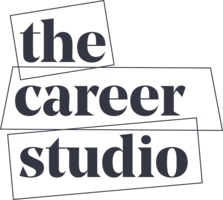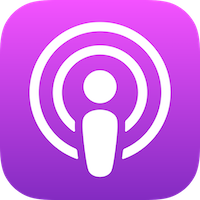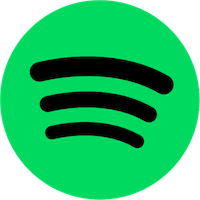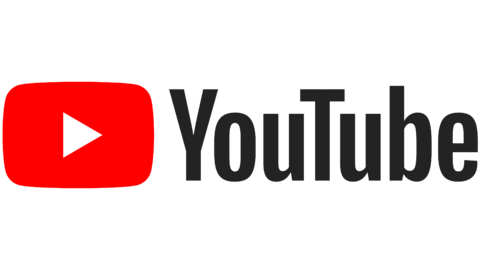How to connect to your gut
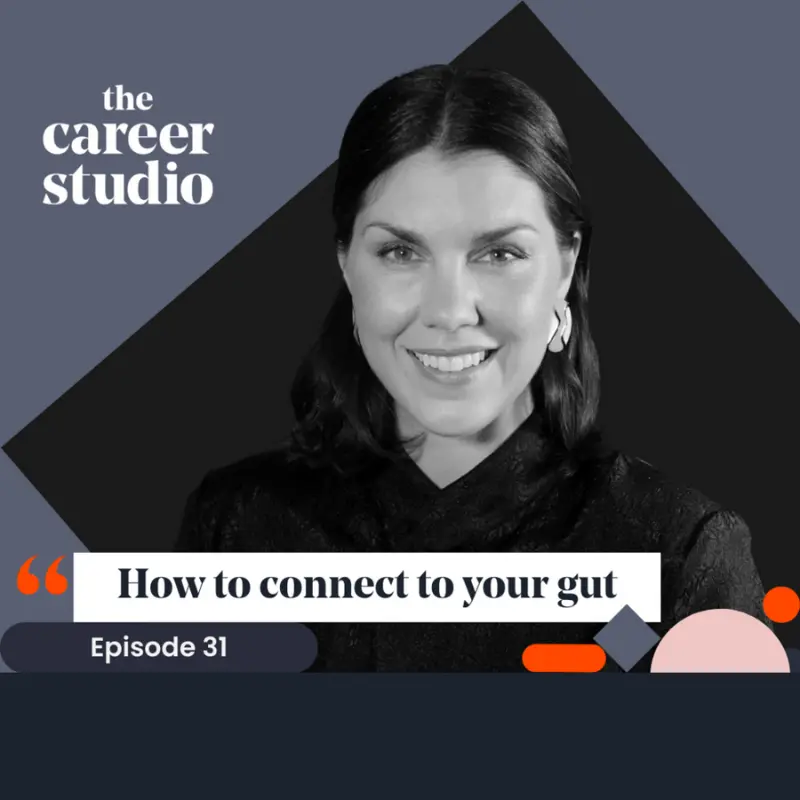
Have you ever had a sense that you shouldn't do something ... and yet, you did it anyways. And then you kicked yourself afterwards when the result isn’t what you wanted because you felt like you had a sense that you shouldn’t do whatever is it that you did? We somehow know our gut is right and important and that connection to it can really help us… but how to hear it and trust it and know when it's right, this can feel elusive and mysterious.
I used to think it was this kind of binary thing, like either you were born hearing it or you weren't. But like most things, it’s a muscle and you can strengthen. Everyone has access to their gut. It's just that we live in a society that doesn't prioritize teaching us how to hear it and strengthen that connection. And so that's what this episode is about: teaching you how to strengthen your connection to your gut, to hear it, to pay attention to it so you can make decisions that are right for you faster.
Are you ready to create an energizing career you love?
You can create a career that is simply an extension of who you are and how you want to live your life. If this sounds like what you’re after then schedule a consultation. We'll get to the bottom of what's going on for you. And exactly where you need to focus to bring your career and life into alignment. It's free!
For more from The Career Studio
Transcript
Welcome to the career studio podcast, where we boil down the noise and focus on the core concepts, essential for building an energizing career you love. One that is simply an extension of who you are and how you wanna live your life. Anyone can do it. It's just a matter of knowing what to focus on.
Hey guys, how many times have you said I knew it? You had some sense that you shouldn't do something And yet, you did it anyway, and then you kick yourself afterwards because you feel like you had a sense that you should have done whatever it is. That you didn't do. We somehow know our gut is right and this important connection that can really help us, but how to hear it and trust it and know when it's right, this can feel elusive and mysterious.
And I used to think it was this kind of binary thing, like either you were born hearing it or you weren't like: “Oh, I'm just not, I'm not very good at hearing my gut. Like, that's just like a thing that I can't do. But like most things you are not born with it or not. It is a muscle and you can strengthen your connection to your gut and your ability to hear it and trust it and make decisions using it.
Everyone has access to their gut. It's just that we live in a society that doesn't prioritize that. And doesn't prioritize teaching us how to hear it and strengthen that connection. And so that's what I'm here to do. Teach you how to strengthen your connection to your gut, to hear it, to pay attention to it.
Because when we do, life flows so much easier. When we have connection to our gut, we trust ourselves, we know what's right for us, and we pay attention to that signal, and we make decisions against that signal, and that makes life feel easier. What gets in the way of hearing our gut? Usually it is over rotating, on using our brain.
So when we say, I knew it, it's because our brain talked us into something else, right? It overpowered the signals your body was giving you. You had a feeling, but you didn't listen to that feeling and you talked yourself into doing something else. And sometimes that talking yourself into doing something else, that can be like a quick thing or a long winded thing.
But you know, our brains are really good at talking us into stuff or out of stuff that they don't understand or that feel inconvenient or uncomfortable or less fun. You know, so sometimes not hearing your gut is because your brain is overpowering it. And this can sometimes come from like a place of obligation or should, or sometimes it can come from pressure, from feeling rushed, from not giving yourself the space and time and rest you need to hear the signals of your body.
Because one of the really important things to learn as part of this work is that the signals your body gives you are often kind of softer and more gentle and in order to hear them, we have to slow down and we have to get quieter in order to hear the signals our body is giving us. I use body loosely here, obviously the brain is part of the body, but I'm talking about the body signals versus the brain signals.
So let's say from the neck down is the body for the purposes of this conversation.
So yeah, we have to slow down. We have to get quiet. We have to take a moment. We have to quiet our brain and we have to listen to what our body is saying, right? When we're: go, go, go, we can't hear our body. When we're exhausted, we can't hear our body.When we're trying to think our way through things, we can't hear our body.
And all of this means we can't hear our gut when we can't hear our body. We can't hear our gut. They're the same. So, connection to your gut not only requires us to slow down and get a bit quieter, it also requires us to connect to our emotional world.
We need to learn the language of emotions. And the more we do this, the more we connect to what's going on in our body. As I mentioned, we aren't really taught how to do this in our society. We are taught to value rational thinking over emotional intelligence, right? Emotions are deemed annoying, like a kind of a pesky fly in the way of executing, right?
Like, you know, toughen up and get through it and don't be emotional and all, right? And of course, logic and reasoning is important. You know, we can't only be governed by our emotions because emotions are fleeting and sometimes they are triggered by stuff that's, you know, that's, that's a little bit unnecessary, but there is a wisdom in intelligence if we use it correctly, and that wisdom needs to be combined with logic and reasoning.
Okay, logic and reasoning needs to be combined with emotional intelligence, and in order to have emotional intelligence, we need to learn what different emotions actually feel like in the body. Okay. So someone who is emotionally intelligent can tell you the difference between anxiety and shame. They can tell you the difference between excitement and joy.
And what I mean by that is like, you want to be able to describe the physical experience of each of those emotions. Right? What is the physical experience of anxiety versus shame? How do those emotions manifest in your body? And what is the different physical sensation that each one of them creates? And if you aren't able to do that right now.
Then you have work to do and that's normal. And you know, that's what I work with all my clients on and it's the work that I've done myself over the past, I don't know, like eight years. But that is the work to increase your emotional fluency. Think of emotions like a language. And in order to speak the language, you really have to know the difference between different emotions.
Okay. And by doing this, you're going to strengthen your connection to your gut because you're going to start to understand what a yes feels like in your body versus a no. Okay. And you should be able to describe what a yes feels like in your body versus a no, that's basically your gut. So I did a whole episode, I think it was episode five on how to feel your feelings.
So you can go back and listen to that as an accompaniment to this episode. But in short, the way that you do it is as follows. If you're feeling some sort of emotional reaction to something, when you realize you're in an emotional space, scan your body. Where is the physical sensation in my body right now?
Describe it. What is the shape? What is the density, texture? Does it have a rhythm? Does it have a temperature, a color? Does it have a metaphor? You know, the more that you can describe it and kind of give it physical characteristics, that's basically what we're looking for. I know that anxiety for me can feel like pressure in my chest, like a tightness.
And there's also like a ball in my belly and I completely lose my appetite. So I feel this tension in my chest where shame for me is kind of hot. It's hot. I feel it in my heart, it's like tingly and it's a very different sensation than anxiety. Excitement to me is buzzy, right? And I can feel that all over my core, even in my legs, tingly versus joy to me is kind of, it's like brighter and it's like much more in my chest where excitement is everywhere.
And joy has a yellow color to it for me. And so everyone's description is going to be different, but you should know the difference between all of the major emotions in your body. So go back and listen to that episode for like a real deep dive into how to feel your feelings and the benefit of feeling your feelings and all of that.
But this is a really important skill to strengthen your connection with your gut. But a shortcut I use when I'm talking with my clients for gut signals is always like what feels energizing and fun. I was having a conversation last week with a client who's working at the moment in a job that is really boring for her and, you know, feels really basic and uninspiring.
And it's kind of like in this sector that she thinks. Quote unquote, she should be in, but she's really doesn't like it. And she's having a networking call, actually an interview with someone who she's exploring. They want her to help start a series of businesses. And she said to me, it was really so fun and energizing to discuss with her potential new boss what the role could be.
She could articulate. It felt fun and energizing. And that to me is everything. It's like it feels fun and energizing. And the other one that she's doing at the moment feels dreary and tiring and dull. And this is often a shortcut way to hearing your gut. Fun and energizing. And in the opposite direction, there's an alarm bell.
You can be like overriding your gut or overriding signals your body is giving you when you feel a should or like a sense of obligation. If you're doing something from a place of FOMO or fear or insecurity, I'll give you some examples. For me, when I was working in tech, I took a job because I thought it would look good on my resume and not because I was actually excited for the job.
So the decision to take the job came from a very rational place. Plus I needed work because my current role was being made redundant. And so I felt panicked to get a job as soon as possible. And so I basically just took the first thing that was offered to me. I was rushing. And as you might remember, I said at the start, when we rush, this is when we start to not hear our gut.
We're go, go, go. We're rushing. We're kind of coming from a place of panic. Okay. And so no surprise, this job that I took from this very rational place of it will look good on my resume and that I rushed to take because I was like, go, go, go. Not listening. Wasn't a good fit. I didn't do the research I needed to do.
I wasn't a good fit for the role or the culture. And eventually I got fired. Okay. So that's like an example of me overriding my gut because I wasn't excited about that job. It didn't sound fun to me. It felt like this thing I should do. I should want to be the first non engineering hire to a seed stage startup to be their head of marketing.
Right. I should want that job. But actually I felt really no excitement for it at all. Another example of kind of having a battle between my gut and my mind is actually last weekend. I think it was. So it was last, last week. Friend of mine said, you know, come over to the girl's house. We're all going out.
And I just been out for a long weekend. The weekend before I'd gone up to Buffalo for a party and to see. Buffalo is actually a cute little town to see a bunch of art. And Frank Lloyd Wright has a house. There was a lovely weekend, you know, it was a vacation and it was a party and it was fun. And then I had a big week at work.
When I came back from that, so I was feeling tired and I just wanted to chill and I wanted to get an early night's sleep and I didn't want to drink and I wanted to wake up in the morning and, you know, do admin and do errands and clean up my house and all of that stuff. But I felt this like FOMO of, well, these are friendships I really want to develop and like, that sounds like a really fun event to go to and I really like the people going and that'd be so fun.
And so I had this tension of like, do I say yes to this invitation or do I say no, but ultimately I was able to say no, because I could feel that my body felt better with the decision of staying in and getting a proper night's sleep and waking up and doing admin and, and just having a couple of days for myself to reset my body felt better with that than Going to the party and going out, and I could feel that difference because I have been doing this work now for a while, and I could feel that it was just my brain being like FOMO, FOMO, FOMO that was trying to override.
My gut, which was saying, no, you need rest. And this is what you actually want to do. Okay. So I could do that because I'm very in touch with what a yes feels like and what a no feels like. I'm very in touch with when my body is talking versus when my brain is talking, but I'm giving you that example to try and illustrate how that manifested for me.
And of course you might say, you know, but Ann, like sometimes we need to take a job strategically because I don't know, we need money or, you know, it would look good on our resume or we should force ourself to go out because otherwise we just stay in at home and we're antisocial and it's like actually good for us to go out.
And I totally get both of those reasons. And so I'll say this. Of course, sometimes we have to talk ourself into things, right? But it should be against a very specific goal that already is, feels aligned and is that we're energized by. So, you know, for example, as I'm building my business, plenty of stuff I have to do for my business that I don't feel like super energized by, you know, I'm recording this podcast It's like 10 o'clock at night on a Tuesday, and I would much rather wait and do this during the day.
The lighting is better for the video, uh, you know, I'd love to have just like watch TV tonight, whatever, but I have to do it now because I had to do some stuff during the day today and my producer needs it this week. So I'm forcing myself to do this and, you know, it's, it's not, it's not that draining for me, but I'm forcing myself to do it.
But it's against a goal that I feel very energized and aligned behind, right? So that's the nuance there. Or when it comes to the balance of socializing versus personal time, which I think is something that a lot of people struggle with. Again, it goes back to my longer term goals. Like in the example I gave before, you know, I have expectations for myself around how I manage my energy, my exercise, my personal admin, my finances.
And these are all things that I wanted to get. Done that weekend. And the previous weekend I'd been partying and having fun and traveling. And, you know, so I'd kind of tick the boxes on my like social things that I wanted to do and objectives I have for myself. And it was time for me to balance the other part of my life.
So Again, not only could I feel energetic, it was right, but it also aligned with my longer term goals I had for myself for the year. So, you know, that's why it's important to set some goals for yourself for the year. You don't have to be crazy about it, but just, you know, what do you expect for yourself?
What's important to you? Having a few goals can help. In those moments of indecision, when you're still building your connection to your body and your gut, sometimes that can also help you decide what to do. Okay. And of course, sometimes you need to take a job because we need the money or because, you know, it's a good stepping stone.
But then we know we're going into that with low expectations that this is not a long term solution. Right. And then we go eyes wide open. And so then the experience of that decision is maybe less upsetting than just kind of taking it without really understanding what we're doing and why. Okay. Like for me, I went, took that job without really being like, Oh, I should.
And then realizing, Oh no, I just haven't listened to myself. Okay. So that's kind of my points for today. Now that you've listened to all of this, let's talk about how do you actually start. I mean, very basically, you really need to make sure you're getting enough sleep. Like first and foremost, if you're exhausted, you can't hear your body.
So, you know, make sure you're getting your seven or eight hours, whatever it is. It's literally the most important thing. And frankly, what I start with all my clients, if you're not getting enough sleep, it's always start there. There's really no, no other more basic place to start. Then carve out regular deliberate downtime where you can recharge.
So within that, like create some sort of regular practice. It doesn't have to be every day. You don't have to be anal about it, but just some sort of regular practice where you can do something meditative, meditative. You don't have to meditate. Not everyone likes meditating, right? But just how can you be with your thoughts in a peaceful or rhythmic way?
You know, so it could be meditating or journaling or stretching or going on a walk, but without headphones, right? We don't want to distract ourselves with other people's thoughts or music. Sometimes we just need to quiet and allow ourselves to hear. So, you know, create some sort of practice where you can kind of just connect with yourself and quiet your mind.
Another step when you're feeling emotional, start to get curious, tune into your body, describe your emotional world. Go back to the feelings episode. Listen to that. The more that you can describe your emotional sensations, really understand the difference between the emotional experiences and frankly process those again, listen to the episode.
The more fluent you will be in your body signals, and this will help you understand what a yes feels like and what a no feels like. Okay. And before any big decision, or if you're, if you're debating a decision, slow down, reflect, do something meditative, put the phone down, step away from the email. You don't need to decide or respond right away.
See how the decision feels in your body. Get grounded, breathe, see what comes up. Usually as I said, if you feel excited about something, it feels light and breezy. If it feels easy and fun, then it's a yes. And if it's anything else, then it's a no or it's a, I need more time to make a decision. And that's a really important one actually, just sometimes you're not sure.
That means you just need to give yourself time, which is why I keep talking about slowing down, right? Not rushing to make a decision. Sometimes you just, maybe you need more information. Maybe you need to process more. Maybe you need to rest more so you can actually hear your body, but it doesn't always mean it's a no.
It could just mean you need more time to hear. And then eventually the answer will appear. This is a nuance, but it's really something that has helped me a lot. It's just allowing the question to be there and allowing space for the answer to emerge and not forcing myself to figure it all out immediately.
Create space to rest, practice feeling, notice what feels energizing and fun. And the more you do this and tune into this, the more you will know what a yes feels like and what a no feels like. You will get feedback that reinforces your practice and eventually not only will you hear your gut, but you will trust it.
And this will allow you to really make energizing, aligned decisions faster. Which means life will feel easier because you'll just be being yourself. And if I've learned how to do this, you can learn it too. Have a great week.
Hey, if you're ready to create an energizing career you love, one that is simply an extension of who you are and how you want to live your life. Then I wanna invite you to schedule a consultation. We'll get to the bottom of what's going on for you. And exactly where you need to focus to bring your career and life into alignment. It's free. Just head on over to thecareer.studio/schedule to find a time that works for you, or if you're enjoying and getting value from these episodes, I'd love you to leave a short review on whatever podcast app you use.
This helps other people like you find and get value from the podcast too
